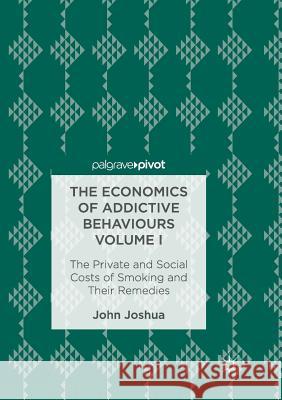The Economics of Addictive Behaviours Volume I: The Private and Social Costs of Smoking and Their Remedies » książka
topmenu
The Economics of Addictive Behaviours Volume I: The Private and Social Costs of Smoking and Their Remedies
ISBN-13: 9783319836287 / Angielski / Miękka / 2018 / 134 str.
The Economics of Addictive Behaviours Volume I: The Private and Social Costs of Smoking and Their Remedies
ISBN-13: 9783319836287 / Angielski / Miękka / 2018 / 134 str.
cena 221,90
(netto: 211,33 VAT: 5%)
Najniższa cena z 30 dni: 212,02
(netto: 211,33 VAT: 5%)
Najniższa cena z 30 dni: 212,02
Termin realizacji zamówienia:
ok. 22 dni roboczych.
ok. 22 dni roboczych.
Darmowa dostawa!
Kategorie:
Kategorie BISAC:
Wydawca:
Palgrave MacMillan
Język:
Angielski
ISBN-13:
9783319836287
Rok wydania:
2018
Wydanie:
Softcover Repri
Ilość stron:
134
Waga:
0.18 kg
Wymiary:
21.01 x 14.81 x 0.81
Oprawa:
Miękka
Wolumenów:
01
Dodatkowe informacje:
Wydanie ilustrowane











